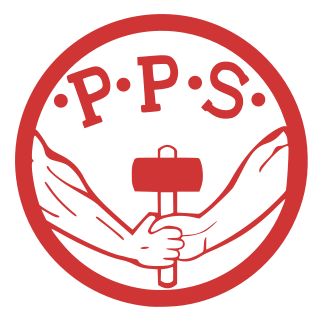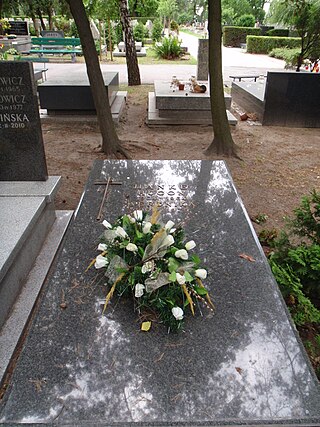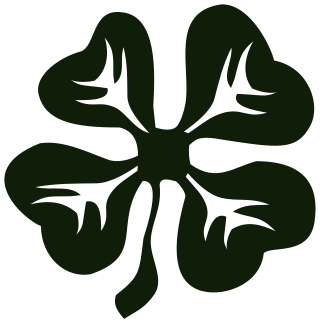Related Research Articles
The Polish People's Party is an agrarian political party in Poland. It is currently led by Władysław Kosiniak-Kamysz.
The Democratic Party, abbreviated to PD, was a minor social-liberal political party in Poland. It had no members of the Sejm, Senate, or European Parliament.

The Polish Workers' Party was a communist party in Poland from 1942 to 1948. It was founded as a reconstitution of the Communist Party of Poland (KPP) and merged with the Polish Socialist Party (PPS) in 1948 to form the Polish United Workers' Party (PZPR). From the end of World War II the PPR led Poland, with the Soviet Union exercising moderate influence. During the PPR years, the centers of opposition activity were largely diminished, and a socialist system was established in the country.

The Nonpartisan Bloc for Support of Reforms was an officially nonpartisan organization affiliated with Lech Wałęsa. The party was established in 1993, and became part of Solidarity Electoral Action in 1997.

The Polish Socialist Party is a democratic socialist political party in Poland.
The Alliance of Democrats, also known as the Democratic Party, is a Polish centre-left party. Initially formed in 1937, the party underwent a revival in 2009, when it was joined by liberal politician Paweł Piskorski, formerly a member of the Civic Platform.
Communism in Poland can trace its origins to the late 19th century: the Marxist First Proletariat party was founded in 1882. Rosa Luxemburg (1871–1919) of the Social Democracy of the Kingdom of Poland and Lithuania party and the publicist Stanisław Brzozowski (1878–1911) were important early Polish Marxists.
The Polish Labour Party - August 80(Polish: Polska Partia Pracy-Sierpień 80, PPP) was a minor left-wing to far-left political party in Poland, describing itself as socialist. It was created on 11 November 2001 as the Alternative – Labour Party and acquired its new name of Polish Labour Party(Polska Partia Pracy) in 2004, before adding the suffix -August 80(Sierpień 80) on 20 November 2009. The party was affiliated with the Free Trade Union "August 80".

Związek Ludowo-Narodowy was a Polish political party aligned with the National Democracy political movement during the Second Polish Republic, gathering together right-wing politicians with conservative and nationalist opinions.

Hugon Hanke was a Polish politician, best known for being 38th Prime Minister of Poland and 8th Prime Minister of the Republic of Poland in Exile and for his unexpected return to the Communist-ruled country while serving as PM.

The General Jewish Labour Party was a Jewish socialist political party in Poland. The party was founded in Lviv in November 1931 by a leftwing group of the General Jewish Labour Bund in Poland in East Galicia, which upheld the idea of dictatorship of the proletariat, a faction of the Poale Zion Left and young left-wing Zionists. The party was aligned with the Communist Party of Poland. The party called for a workers' government, equality for Jewish working people, education in Yiddish language for Jewish children in state schools, abolition of discrimination in the labour market and to struggle against anti-semitism.
The Independent Socialist Labour Party was a political party in Poland. The party was founded on March 12, 1922, in Kraków. Initially the party bore the name Party of Independent Socialists. Bolesław Drobner was the chairman of the party. The party became affiliated with the Vienna International.

The National Party was a political party in Poland which was reactivated in 1989 in Warsaw by Jan Ostoja Matłachowski, Leon Mirecki, Maciej Giertych, Bogusław Jeznach, Bogusław Rybicki and others as the successor to the pre-war National Party. Its first chairman was Stefan Jarzębski. The re-activated SN was officially registered on 21 August 1990.

The Polish People's Party existed in post-World War II Poland from 1945 to 1949. In a period of increasing solidification of communist power in Poland but with the political system retaining some formal adherence to multiparty democracy principles, the PSL was a broadly left-wing non-communist party that was not allied with the communists. The PSL was defeated by the communist-based bloc in the rigged legislative elections of 1947.

The Polish Communist Party, or the Communist Party of Poland, is an anti-revisionist Marxist–Leninist communist party in Poland founded in 2002 claiming to be the historical and ideological heir of the Communist Party of Poland, Polish Workers' Party and the Polish United Workers' Party.

The Labour Party is a minor political party in Poland. It was formally called the Christian-Democratic Labour Party(Polish: Chrześcijańsko-Demokratyczne Stronnictwo Pracy, ChDSP) between 1989 and 2000. The party continued the traditions of the pre-war Labor Party, which ceased its activities in Poland in 1946. This made the party be considered a historical formation, together with the Polish Socialist Party.
Zygmunt Felczak was a Polish politician. He was a member of the State National Council and a deputy governor of Pomerania. As an activist of the National Workers' Party and the Labour Faction, he founded the daily paper "Ilustrowany Kurier Polski" and took part in the Warsaw uprising.

United Beyond Boundaries, known as Action of Disappointed Retirees and Pensioners until 2022 is a Polish political party founded in 2018. The party was created in February 2018 and formally registered six months later, in August 2018. The leader of the party is Wojciech Kornowski, a prominent member and founder of the nationalist communist organisation Patriotic Union "Grunwald". Kornowski was briefly the leader of democratic socialist National Party of Retirees and Pensioners in May 2012, but seceded from the party to create his own pensioner-oriented party Pensioners' Party of the Republic of Poland, which then became the Action of Disappointed Retirees and Pensioners in 2018. Since 2022, the party also leads an electoral committee "United Beyond Divisions".
The Alternative Social Movement was coalition of Polish political parties formed on 18 March 2001 in Warsaw for the 2001 Polish parliamentary election. The grouping was formed from a merger of Confederation of Independent Poland - Patriotic Camp led by Michał Janiszewski, Tomasz Karwowski, and Janina Kraus, together with a group of politicians originating from the Christian National Union (ZChN), including Henryk Goryszewski and Mariusz Olszewski. The coalition was also joined by the Free Trade Union 'August 80' Confederation, led by Daniel Podrzycki and Bogusław Ziętek. The Alternative Social Movement was registered as a political party, and its members mainly became the activists of August 80.
References
- ↑ Eva Plach The clash of moral nations: cultural politics in Piłsudski's Poland, 1926-1935 (9780821416952): - Footnote Page 205/206 2006 "Party of Work (Partia Pracy) (which had evolved from left-wing peasant party PSL-Liberation) to form the Union of Labour in Town and Village (Zjednoczenie Pracy Wsi i Miast) in June 1928. The Union of Labour in turn formed a core block within the BBWR .."